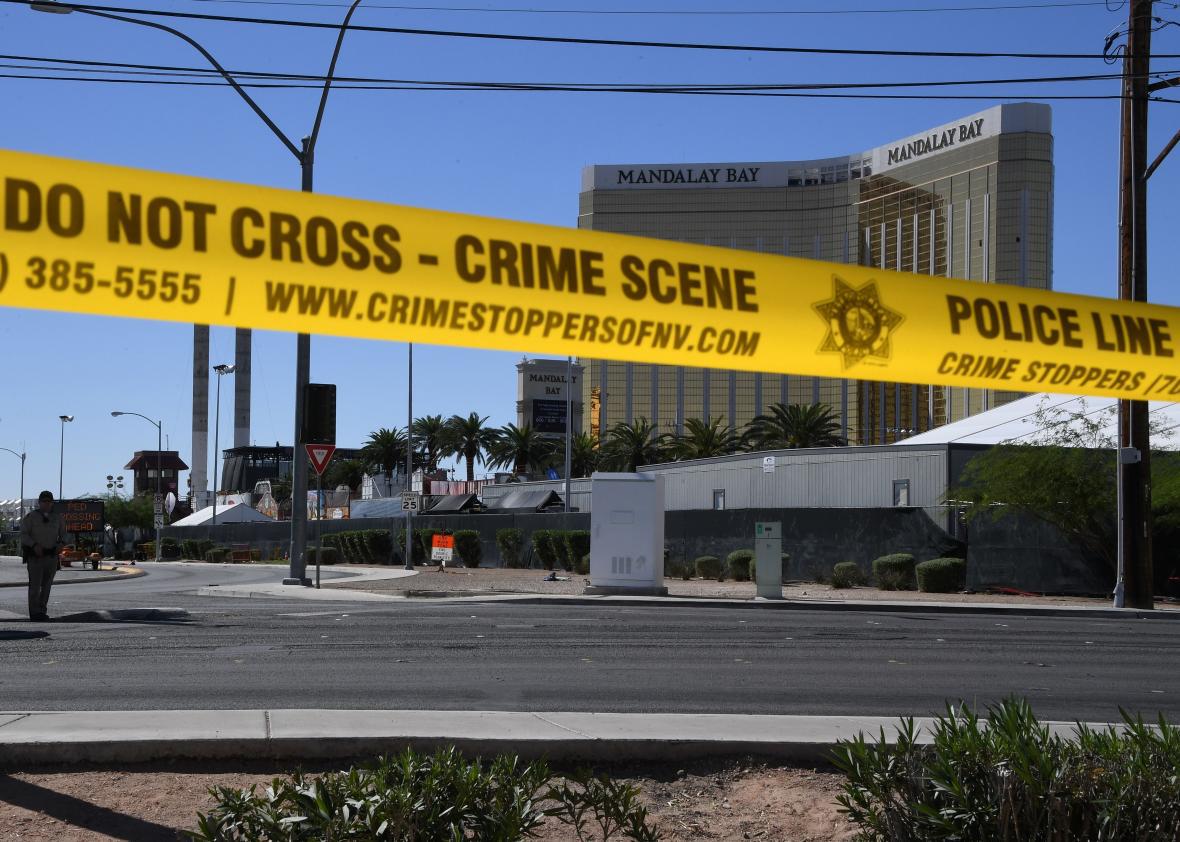News reports suggest Stephen Paddock, a reclusive professional gambler who lived in a retirement community in Nevada, had a very limited public profile before perpetrating one of the deadliest mass shootings in American history. His late father, a notorious bank robber who spent eight years on the FBI’s 10 Most Wanted List after escaping from a federal prison in Texas, was a very different kind of criminal. The elder Paddock, whose nicknames included “Big Daddy” and “Chrome Dome,” was charged in 1960 with stealing about $25,000 from three separate bank branches in Phoenix, Arizona. Paddock was 34 at the time, and had already been to prison twice for his role in what the Arizona Republic called “confidence games.”
According to witnesses who testified at Patrick Benjamin Paddock’s trial in 1960, an assistant bank manager took the initiative to follow him after one of the robberies and took note of the unusual radio antennas affixed to his getaway vehicle. Two days later, six FBI agents located Paddock near a gas station in downtown Las Vegas. When the bank robber tried to run one of them over with his car, the agent fired at his windshield. Paddock was arrested shortly thereafter; a search of his vehicle turned up a loaded .38 snub-nose revolver, a blackjack, and about $3,000 in cash.
Prior to his arrest, Paddock had been living in Tucson with his wife and four kids. (Most likely, the gunman who carried out Sunday night’s attack was among them.) According to a newspaper account, the family’s neighbors said they couldn’t believe that Paddock—who was known as a “hot rod racer who keeps his head shaved so he resembles Yul Brynner”—“was involved in crime.”
Paddock, who pleaded not guilty to charges of armed robbery, was convicted by a jury in early 1961. A judge sentenced him to 20 years in prison.
The authorities could not hold him for long. On Dec. 31, 1968, Paddock, who admitted trying to sneak out of a Las Vegas jail after his arrest, broke free from a federal prison in La Luna, Texas. Six months later, the FBI added him to its 10 Most Wanted list.. (You can see the wanted poster, which refers to Paddock as “psychopathic,” here.)
After his disappearance, the career criminal wouldn’t surface again until 1978. He reappeared in Springfield, Ore., where he lived for an unknown length of time under the alias “Bruce Ericksen” while running a shady bingo parlor and a side-business turning back car odometers. An obituary that ran in an Oregon newspaper, the Eugene Register-Guard, in 1998, explained that Paddock had partnered on the bingo parlor with an obscure nonprofit to skirt state gambling laws. Describing its subject as “a con man who loved to stick his pudgy thumb in the eye of authority,” the obit reported that in the wake of his apprehension in Oregon, Paddock was paroled by federal authorities after just one year away. He then returned to Oregon to open a new bingo parlor, this time under the guise of a non-denominational church, of which he claimed to be the pastor. In 1987, the state attorney general charged him with civil racketeering in connection with the bingo parlor, but a judge let him off with a $100,000 fine.
According to his obit, Paddock most likely spent his final 10 years living in Texas, where, according to the woman he lived with, he helped her run a machine shop and received a VA pension. “I always felt he spent his whole life trying to atone for his past,” the woman told the Register-Guard after Paddock’s death at 77.
